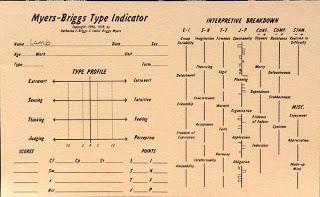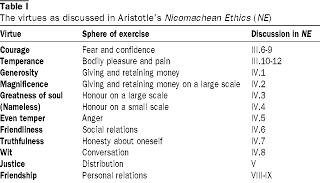

If we want to have a more adequate theory of the actor (link), we need to broaden our understanding of the factors and capacities that affect action. The categories of personality and character are both relevant to the ways in which we understand how people behave in ordinary and extraordinary circumstances. So a theory of the actor ought to have a place for these concepts.
How are these concepts related? Both have to do with persistent features of behavior, but they seem to have somewhat distinct domains and have been approached by widely separated disciplines. In particular, character seems to be morally charged in ways that personality is not.
Here are some examples of characteristics that seem intuitively to fall into the two categories.
Personality Character
Outgoing Honest
Sociable Capable of carrying out commitments
Introverted Slippery
Shy Deceptive
Perfectionist Manipulative
Careless Courageous
Ambitious Pays attention to principles
Short-sighted Opportunistic
Agreeable Kind
Secure / insecure Cruel
Curious Self-directed
Both sets of characteristics go beyond (or below) rational calculation and utility. (In fact, we might say that the purely rational individual lacks both personality and character; his/her actions are dictated by current estimates of costs and benefits of various lines of action.) Both personality and character have to do with features of behavior that are non-purposive to an important extent. They have to do with who the actor is, not so much with what he/she wants to accomplish. Rational calculation is sometimes at odds with some of these features -- sometimes principles and commitments stand in the way of self interest, so character dictates a different course of action than prudence.
Personality falls within the domain of empirical psychology. There is a long tradition of research and theory in the area of personality psychology. Psychologists seem to favor to use the vocabulary of "personality traits" (Jerry Wiggins, "In Defense of Traits," Handbook of Personality Psychology, edited by Robert Hogan et al). And a central goal of personality psychology has been to discover a taxonomy of personality types that allow classification of all normal human beings. Along with such a taxonomy, the discipline has sought to create measurement tools that permit application of the scheme to ordinary human subjects.
The study of character has tended to be a preoccupation of philosophers, who approach the question in a more theoretical and apriori way. Philosophers extending back to the ancient Greeks have attempted to identify the features of a person's inner life that enhance or diminish the person's moral worthiness. Part of the moral connotation of features of character is captured in the linguistic fact that many of the features we attribute to character are virtues (or vices). We praise people who possess a number of virtues, and we criticize them if they lack these virtues (or possess the contrary vice). This field of study might be called "moral psychology," but it has tended to be non-empirical. In the past two decades there has been a degree of convergence between the empirical study of behavior and the philosophical study of moral decision making, in the topic area of evolutionary moral theory (Moral Psychology: The Evolution of Morality: Adaptations and Innateness (Volume 1), Moral Psychology: The Cognitive Science of Morality: Intuition and Diversity (Volume 2)).
There is academic and popular disagreement about the degree to which personality traits are acquired or innate. Some argue, along the lines of the sociobiologists, that at least some features of social behavior are controlled by our evolutionary history. The underlying rationale for this hunch is the likelihood that personality traits have effects on reproductive success; individuals who have traits that allow them to be more successful in eliciting cooperation from others are more likely to reproduce successfully. (This is the underlying thought in Allan Gibbard's Wise Choices, Apt Feelings: A Theory of Normative Judgment.) And others maintain that the individual is highly plastic at birth, so the developmental environment is the primary causal factor in the development of personality.
We might try to draw a distinction between personality and character along these lines. Personality has to do with the psychological "hardware" with which the individual is equipped. Just as a snappy Mustang has great acceleration and so-so gas mileage (determined by the organization of its component systems), some individuals have affable, agreeable interactions with other people (determined by the organization of their affective systems). Character has to do with moral capacities in embodied human beings: the ability to keep a promise, tell the truth, or stand resolute in the face of threat. Character has to do with the ways we conceive of ourselves and sculpt our actions to fit our expectations; personality has to do with reactive features of our psychological systems.
(Here is a very good essay on "Moral Character" by Marcia Homiak in the SEP; link.)
